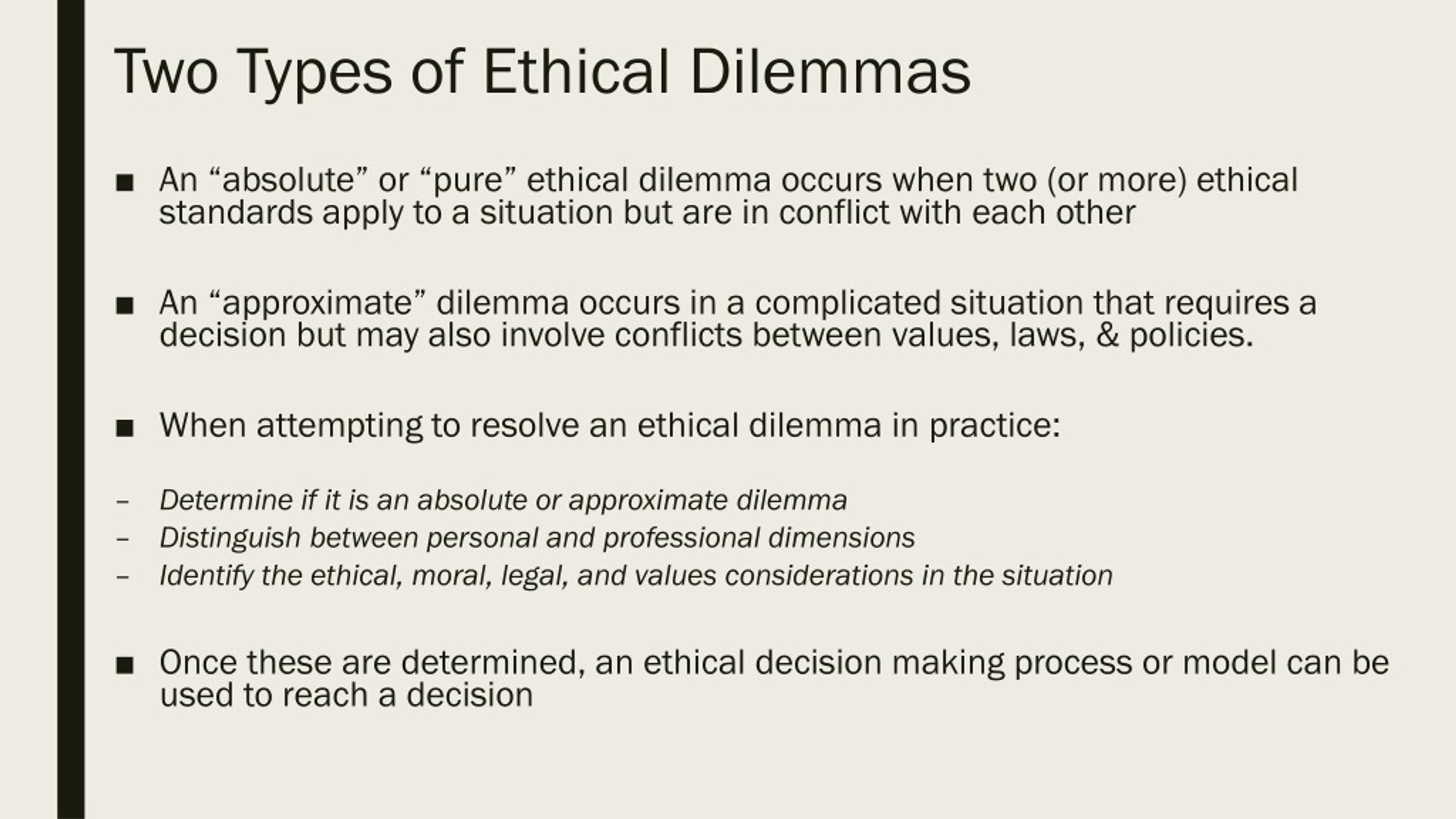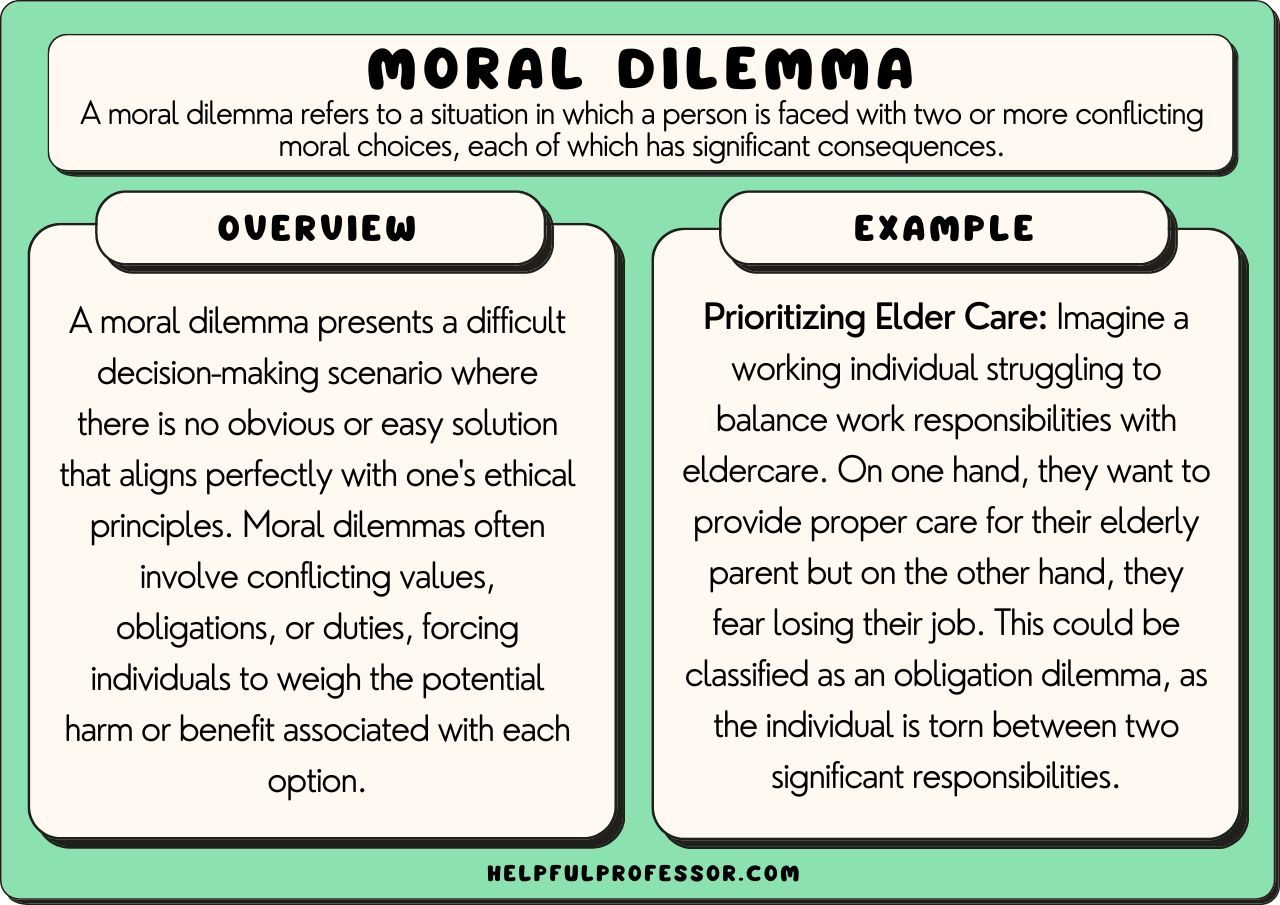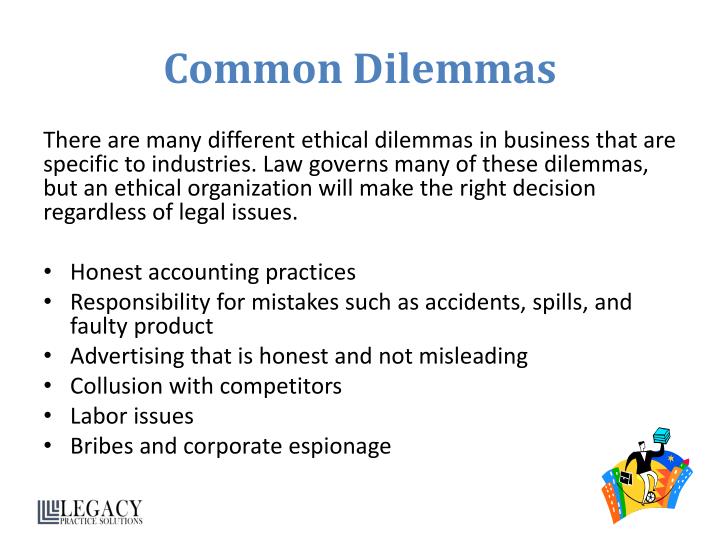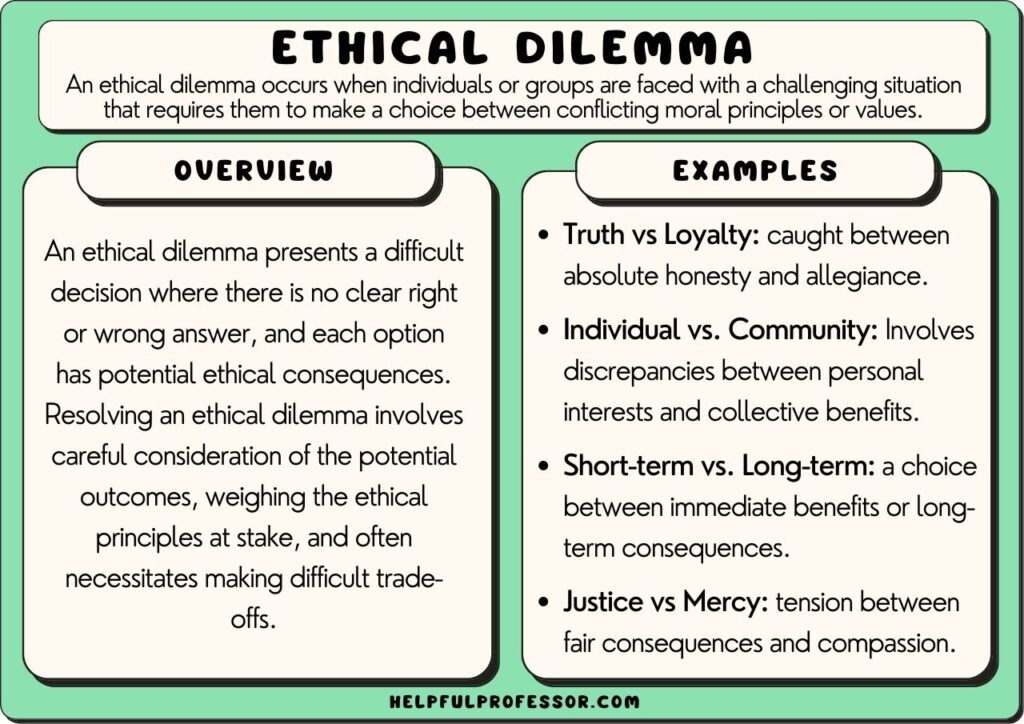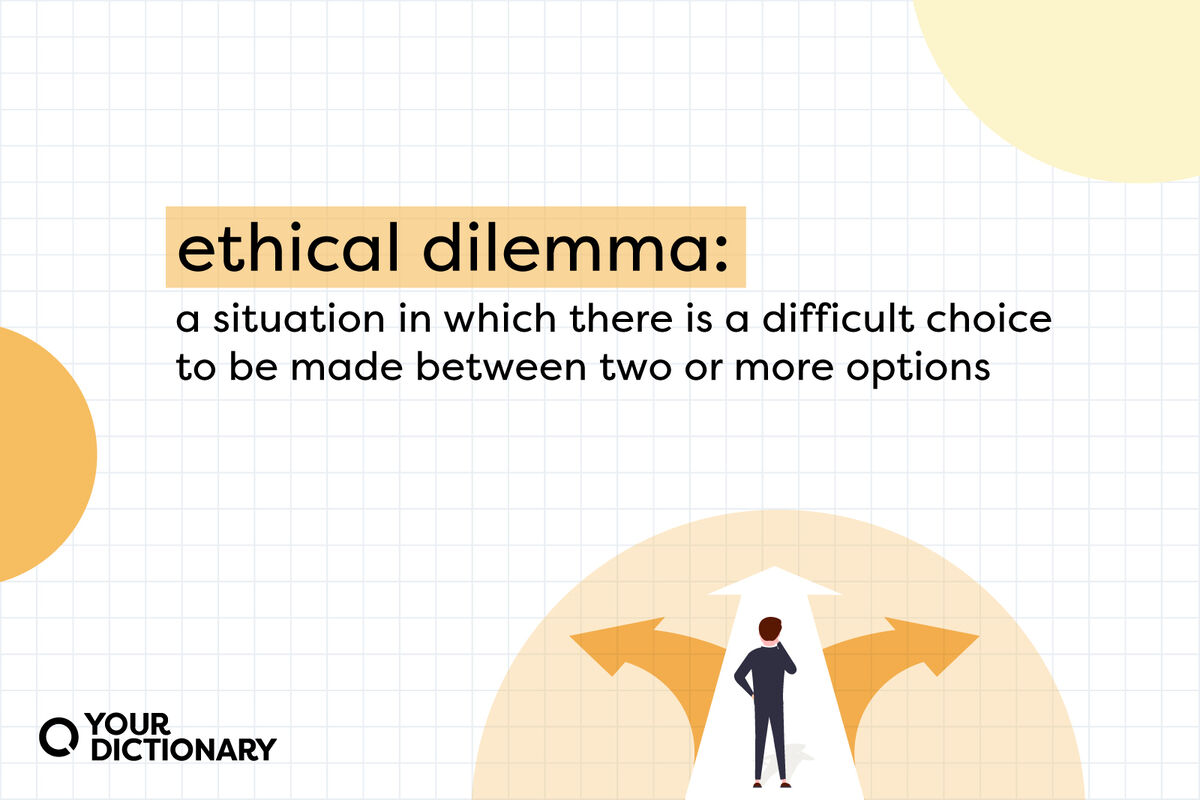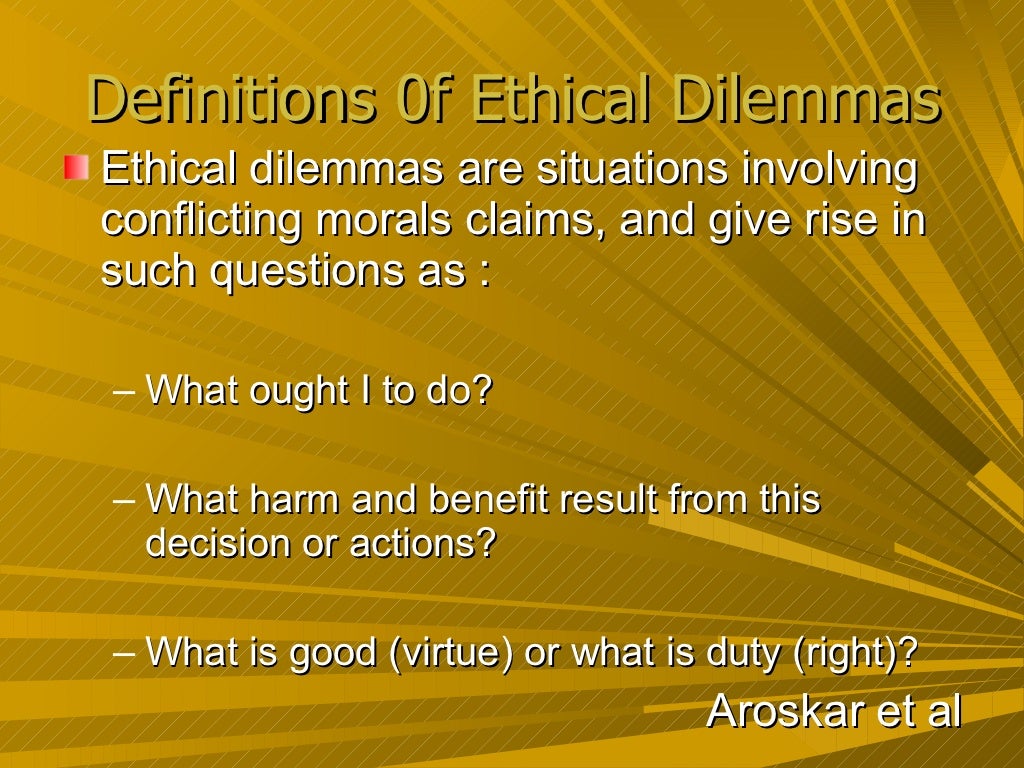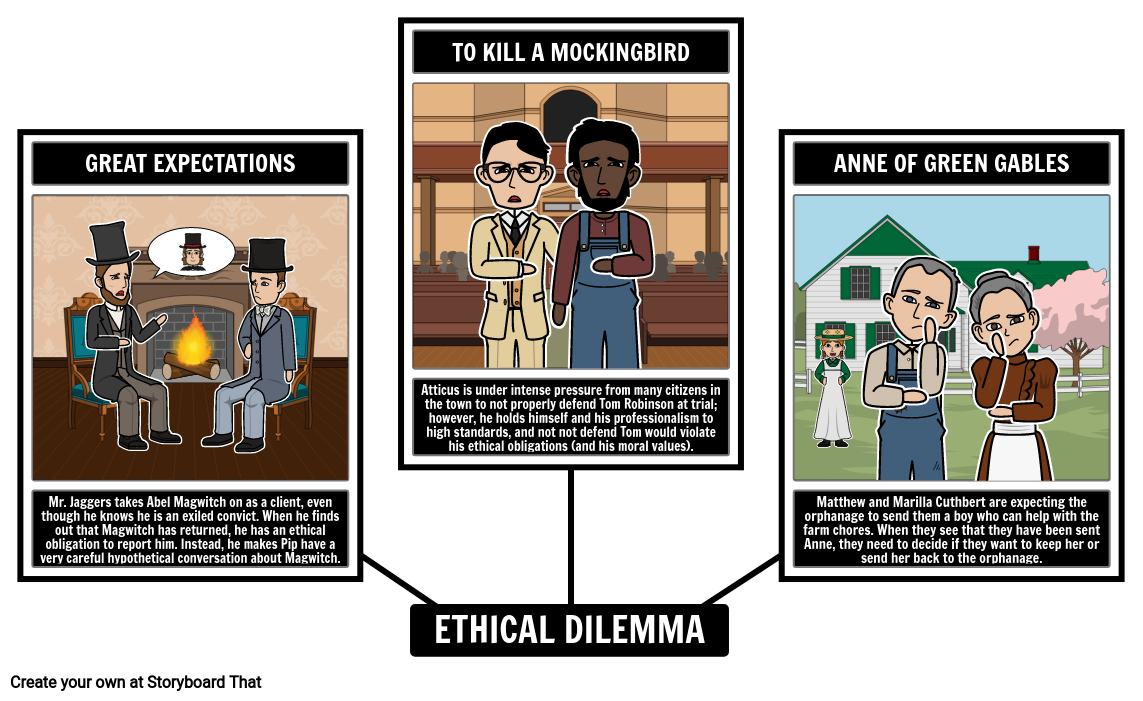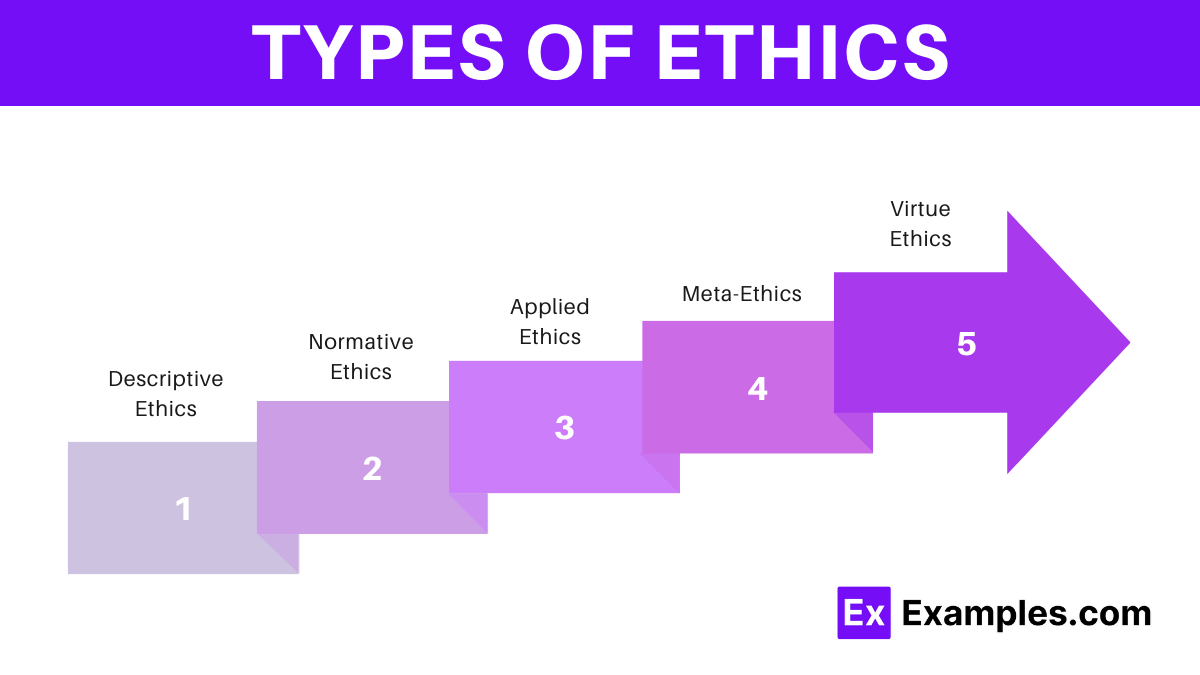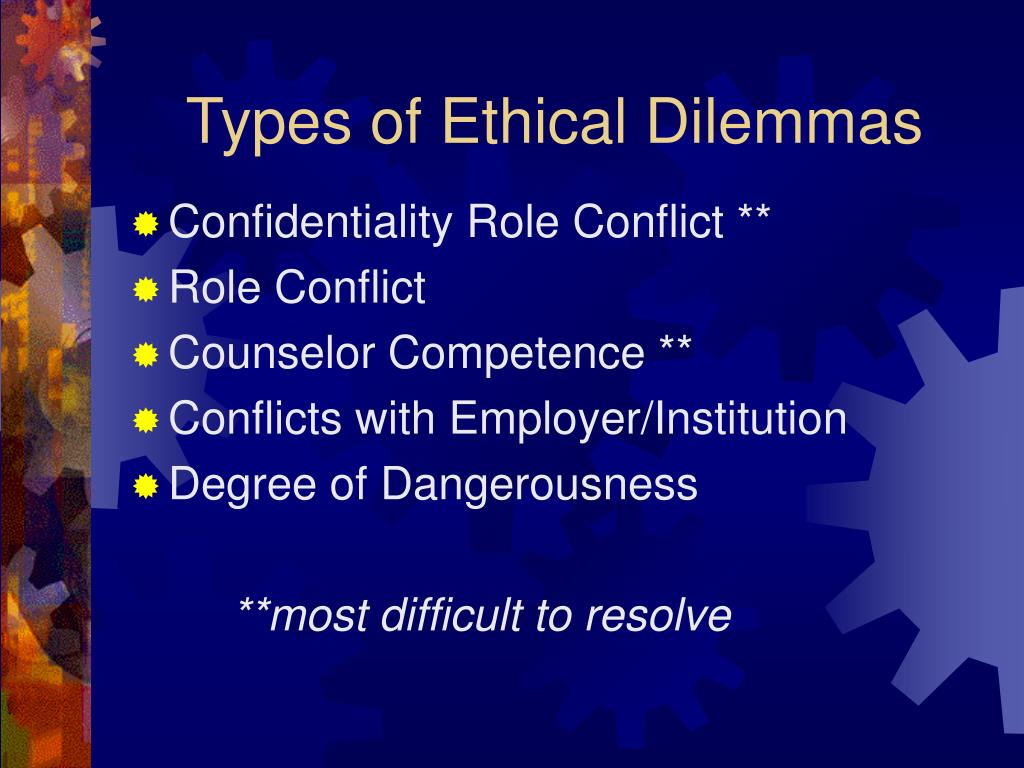What Are The Different Types Of Ethical Dilemmas
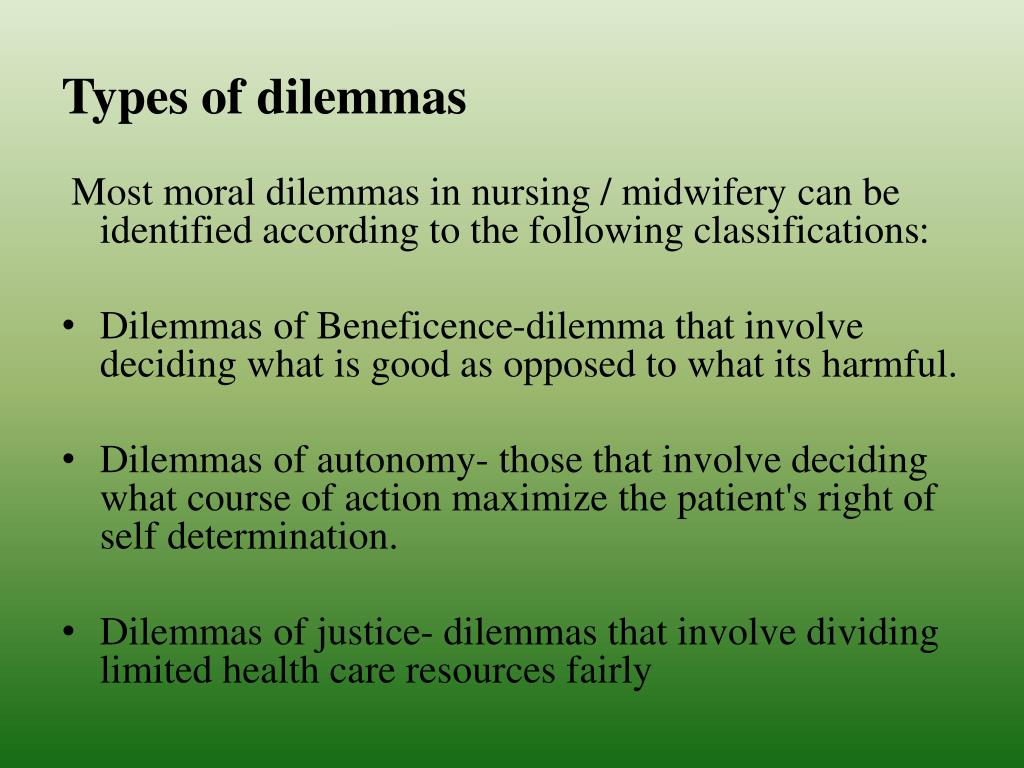
Imagine you are a doctor, and two patients are in dire need of a liver transplant. Only one liver is available. Patient A is a renowned scientist on the cusp of a medical breakthrough, while Patient B is a young mother with three children. Who do you choose? The weight of such a decision, the moral tightrope walk, highlights the complex world of ethical dilemmas.
Ethical dilemmas are situations where moral principles clash, and choosing one path means potentially violating another. Understanding these dilemmas and their different forms helps us navigate complex decisions with greater awareness and integrity. They challenge our values and force us to consider the consequences of our actions, not just for ourselves, but for everyone involved.
What Lies Beneath: A Look at the Core Types
At their core, ethical dilemmas arise from conflicting values and responsibilities. Let's explore some common categories.
Truth vs. Loyalty
This dilemma involves the tension between honesty and allegiance. Imagine discovering a colleague is engaging in unethical behavior. Do you prioritize your loyalty to them or your duty to the truth?
The choice can be agonizing, potentially damaging relationships while upholding ethical standards.
Individual vs. Community
This dilemma pits the needs of an individual against the greater good of a community. Consider a public health crisis where individual liberties must be restricted to protect the collective. Balancing these interests requires careful consideration of consequences and potential impact.
Short Term vs. Long Term
The dilemma presents a choice between immediate benefits and future consequences. Exploiting resources for short-term gain, even if detrimental to the environment in the long run, is a typical example. These decisions require foresight and an understanding of sustainability.
Justice vs. Mercy
Here, the conflict lies between applying the law fairly and showing compassion in individual circumstances. A judge faces this dilemma when sentencing a petty thief who stole to feed their family. Applying justice strictly may seem harsh, while mercy could undermine the law.
The Landscape of Ethical Decision-Making
Understanding these categories is just the beginning. Ethical decision-making often involves a complex web of factors. According to the Markkula Center for Applied Ethics at Santa Clara University, a strong ethical framework involves recognizing the ethical issue, getting the facts, evaluating alternative actions, making a decision, testing it, and reflecting on the outcome.
Organizations like the American Medical Association and the American Bar Association provide codes of ethics to guide professionals in navigating these challenging situations.
Furthermore, the impact of technology adds another layer of complexity. The rise of artificial intelligence and data privacy raises new ethical concerns. We must adapt our frameworks to address these evolving challenges.
More Than Just Rules: Fostering Ethical Awareness
Ethical decision-making isn't just about following rules; it’s about cultivating a mindset. It is about developing empathy and critical thinking. Fostering open dialogue and ethical awareness within communities and organizations is key.
This involves encouraging people to voice their concerns, challenge assumptions, and consider diverse perspectives.
Ultimately, navigating ethical dilemmas is an ongoing journey. It's about learning from our mistakes and continuously refining our moral compass. By understanding the different types of ethical dilemmas and fostering a culture of ethical awareness, we can make more informed and responsible decisions, leading to a more just and compassionate world.
